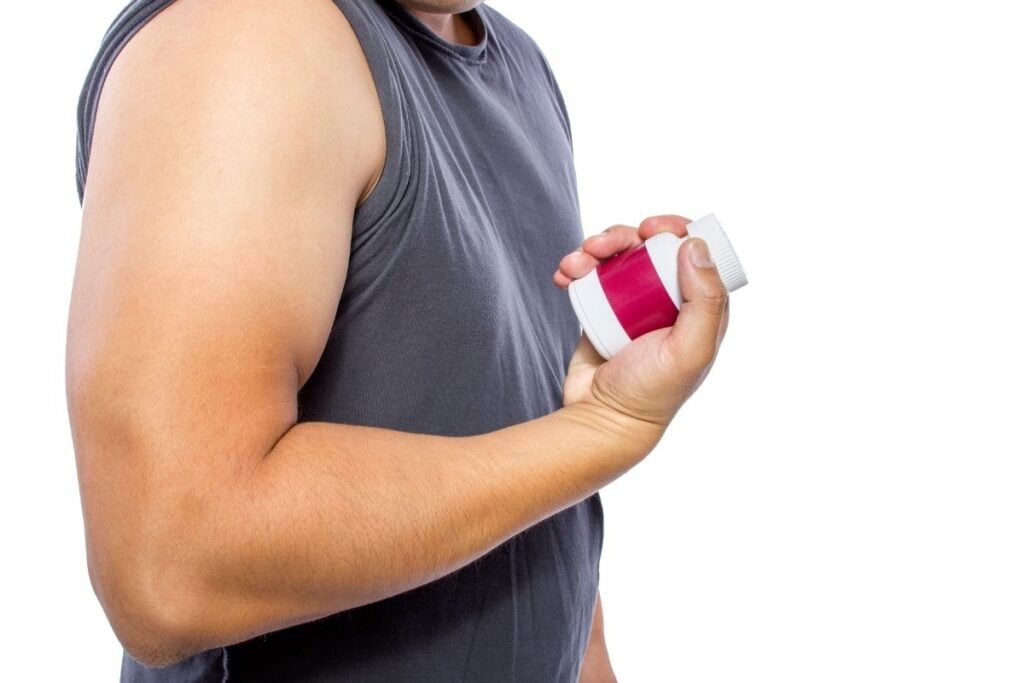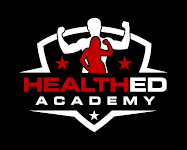Drugs and substances that increase testosterone levels in the body are known as testosterone boosters. These boosters are used to treat a wide range of conditions and symptoms.
While low testosterone can result in a range of symptoms, increasing testosterone comes with its own set of risks.
Here, we will talk about the uses and effectiveness of testosterone, and the possible benefits and drawbacks of these drugs.


What Is Testosterone And What Does It Do?
Testosterone is an androgen hormone that promotes the formation of masculine characteristics such as muscle mass, facial hair, and a deep voice.
Even though testosterone is the major sex hormone in men, it is also found in women, though in much lower concentrations.
Testosterone affects several aspects and functions of the human body, including:
- Growth of genital organs in males
- Bone density and muscle mass
- Hair growth and where it grows - facial and chest hair in males
- Reproductive health in females
- Sex drive/libido
Low testosterone is defined as less than 300 nanograms per deciliter (ng/dL).
The average testosterone level in people varies based on a variety of factors, including age. Total testosterone levels in males aged 19–39 years varied from 264 to 916 ng/dL, according to a 2017 study. In the study, higher findings are regarded as overly high.
An underlying medical condition, certain medicines, or testicular injuries can all produce hypogonadism or low testosterone. High testosterone levels can also be caused by anabolic steroid use, adrenal gland tumors, or a medical condition.
What Are Testosterone Boosters Used For?
Testosterone boosters have a variety of uses in the medical industry. These include:
- Increasing energy levels and boosting mood
- Increasing sex drive and improved sexual performance
- Treating hypogonadism
- In workout routines for building muscles or bodybuilding
Are They Effective?
While testosterone replacement therapy (TRT) can help with low testosterone, it doesn't always address the underlying cause.
A doctor may prescribe lifestyle changes and other medications to address hypogonadism caused by obesity, metabolic problems, or thyroid problems.
In a 2018 study, researchers coordinated seven controlled studies in 788 older individuals with low testosterone levels. The participants were administered either AndroGel 1 percent or a placebo for 12 months.
The data indicated that testosterone treatment significantly increased sexual performance, bone density, and red blood cell count. In the testosterone treatment group, walking distance, mood, and depressive symptoms all improved modestly.
In the 2017 article, researchers evaluated the efficacy of d-aspartic acid (DAA) as reported in 27 animal and human studies.
DAA boosts testosterone levels in animals, according to a study. Human experiments, on the other hand, have produced a mixed bag of results. This could be due to study design limits, as well as participant disparities in age, physical fitness, and testosterone baseline levels.
According to a 2015 study, DAA supplementation showed no effect or reduced testosterone levels depending on the dosage in 24 males who had done at least two years of weight training.
The authors of a 2013 analysis analyzed the outcomes of 25 randomized controlled studies that looked at the effects of DHEA supplementation in 1,353 men. It resulted in moderate body fat reductions but no increases in testosterone levels.
It seems that testosterone boosters work well in improving the symptoms of low testosterone levels, but are not sufficient in treating the underlying cause of this issue.
What Can Cause Low Testosterone?
A lot of factors can affect testosterone levels. The body normally produces less of the hormone as it ages.
In a 2016 study, researchers measured testosterone in 271 healthy men between the ages of 40 and 70. According to the study, testosterone levels decreased by 1.28 percent per year
Low testosterone levels can be caused by a variety of reasons though, not just age. These include:
- Hypogonadism
- Being overweight or obese
- Type 2 diabetes
- Undescended testicles
- Pituitary gland disorders
- Genetic disorders like Klinefelter syndrome
- Some medications including chemotherapy and opioid pain relivers
What Are The Benefits Of Testosterone Boosters?


Taking testosterone boosters can provide several benefits for people with low testosterone levels including:
- Increasing bone density and strength
- Improving sexual drive and function
- Improves muscle strength and physical endurance
While testosterone replacement therapy can help with hypogonadism symptoms, it may not work as well in patients who already have low testosterone levels due to factors like advanced age.
What Are The Risks?
Like all medications, there are many side effects associated with testosterone boosters. These include:
- Low blood sugar
- Decreased sperm count
- Acne (even in adulthood)
- Increased blood cell count
- Sleep apnea
- Prostate enlargement
- Fluid retention
- Breast enlargement
When testosterone is injected, it can induce edema, bruising, and soreness near the injection site. When administered to the skin, topical testosterone gels and patches may induce allergic reactions.
The American Urological Association only recommends testosterone replacement therapy (TRT) if a person's testosterone level is less than 300 ng/dL and they are experiencing hypogonadism symptoms. The risks of TRT, on the other hand, may outweigh the benefits.
Because testosterone supplements are not regulated by the FDA, there is a wide variation of quality, purity, and dosage.
The injection of testosterone can cause edema, bruising, and discomfort near the injection site. Topical testosterone gels and patches may cause adverse responses when applied to the skin.
If a person's testosterone level is less than 300 ng/dL and they are having hypogonadism symptoms, the American Urological Association recommends testosterone replacement treatment (TRT). On the other hand, the hazards of TRT may outweigh the benefits.
Because testosterone supplements are not regulated by the FDA, quality, purity, and dosage can vary greatly.
When taking testosterone boosters you need to know exactly where the drug came from and how much is in each dose or you could suffer from many of the side effects listed.
Frequently Asked Questions (FAQs)
Your questions on testosterone boosters' uses and effectiveness answered here:
How long does it take for testosterone boosters to work?
The effectiveness of testosterone boosters depends on several factors, such as the individual's age, health condition, and dosage. Some people may notice improvements in their symptoms within a few weeks, while others may take several months to see any changes. It is essential to talk to a doctor before taking any testosterone booster and follow their recommended dosage and timeline.
Do testosterone boosters cause hair loss?
Testosterone boosters can cause hair loss in some individuals. Testosterone converts to dihydrotestosterone (DHT), a hormone that causes hair follicles to shrink, leading to hair loss. However, not all testosterone boosters have the same effect on hair loss. DHT blockers, such as saw palmetto, can reduce the conversion of testosterone to DHT, reducing the risk of hair loss. Again, it is vital to talk to a doctor before taking any testosterone booster and get advice on possible side effects.
Are natural testosterone boosters safe to use?
Natural testosterone boosters are generally considered safe when taken as directed. However, it is essential to read the label carefully and follow the recommended dosage. Natural supplements can interact with other medications or health conditions, causing adverse effects. It is also essential to purchase natural testosterone boosters from reputable manufacturers and retailers to ensure the quality and safety of the product.
Takeaway
Testosterone boosters are prescription medications that help patients increase their testosterone levels. Booster effectiveness, on the other hand, varies depending on the type of booster and the reason for its use.
Hypogonadism patients appear to benefit from testosterone therapy. TRT is rarely recommended to treat age-related testosterone loss unless sexual dysfunction is prevalent in the person.
Alternative treatments, such as testosterone supplements, require more proof before they can be used. Supplements have been linked to an increased risk of heart, kidney, and liver disease.
People should always contact their doctor before starting any new drug or supplement, and carefully weigh up the benefits and risks before taking the drug.
